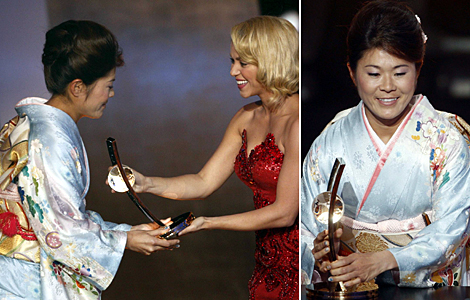Company blacklist for quality problems
Updated: 2012-01-12 07:35
By Zhou Wenting (China Daily)
|
|||||||||
BEIJING - The country's top quality watchdog will establish a blacklist of businesses with shoddy practices that will be made available to the public, the State Council said in a meeting on Wednesday.
The meeting highlighted the demand for greater efforts to crack down on quality failures as the country's overall quality standard lags behind economic development, and quality problems, especially food safety incidents, occur from time to time. Some production operators lack credibility and manufacture and recklessly sell fake and shoddy products.
In 2011, the General Administration of Quality Supervision, Inspection and Quarantine established a blacklist system for food companies engaged in import and export, according to Zhi Shuping, minister of the administration. Among the 4,470 inspected plants last year, 55 were put on the blacklist because of serious violations.
"The quality credit system, which will be built up this year, may mainly target manufacturers of food, building materials, agricultural products and small and medium enterprises," Zhi said.
Experts welcomed the practice, saying it will further urge enterprises to be responsible for the quality of their products.
"It is more embarrassing for a company to be given bad public attention than a cash penalty," said Qiu Baochang, head of the lawyers group of the China Consumers' Association.
In addition, Qiu suggested a scoring system for businesses, which may effectively expel those constantly failing to meet quality standards.
"It's like a way to manage driving licenses. Losing 12 points within a year will lead to a driving ban," he said.
By decreasing points and even banishing those lawbreakers, he said, it will be helpful to curb malpractices that damage consumer interests, such as frauds and accidents due to negligence.
"It will be desirable to establish another list to honor those with consistent quality performance," Qiu said. "But the evaluation policy should be open and transparent, and be implemented by a credible third party."
Hot Topics
Kim Jong-il, Mengniu, train crash probe, Vaclav Havel, New Year, coast guard death, Internet security, Mekong River, Strait of Hormuz, economic work conference
Editor's Picks

|

|

|

|

|

|







